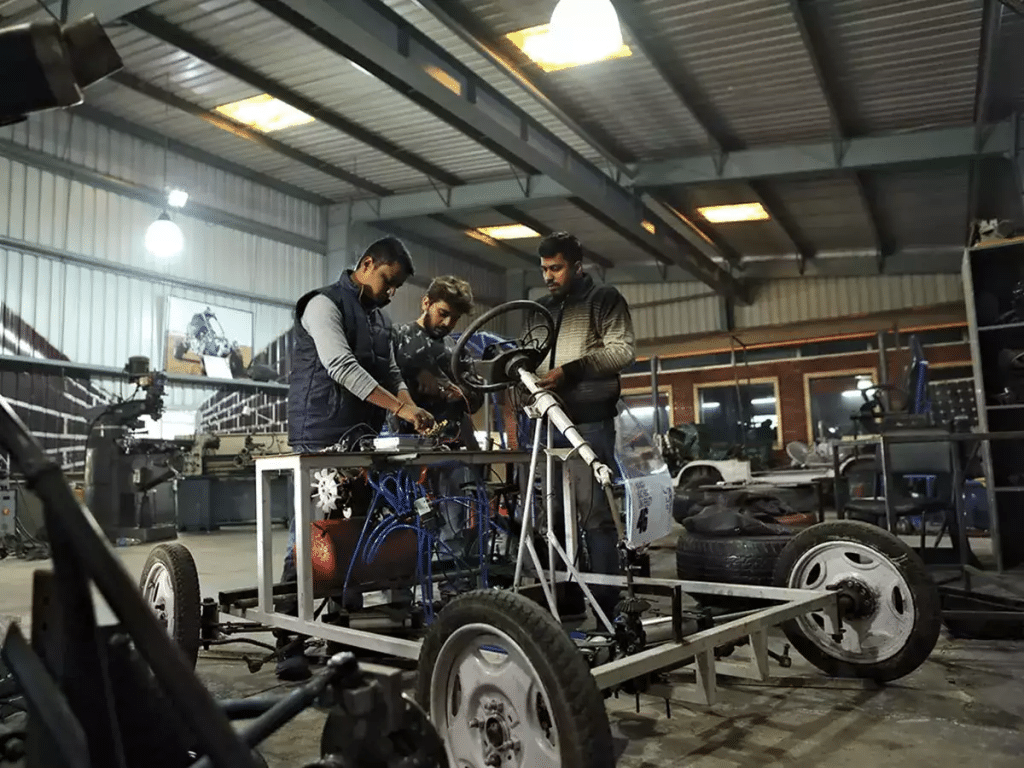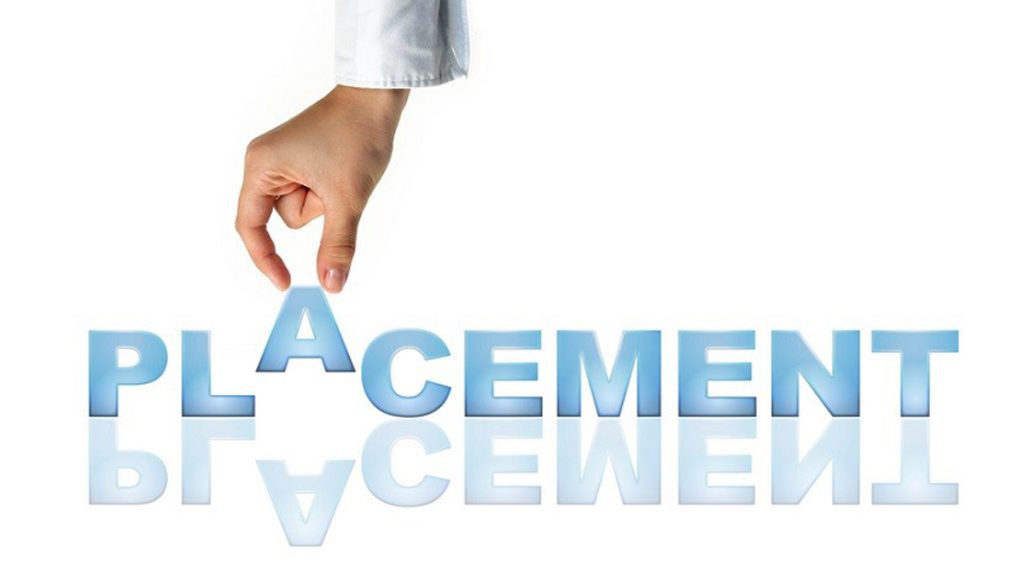MECHANICAL ENGINEERING One of the broadest engineering disciplines Study of objects and systems in motion
ABOUT THE DEPARTMENT
The Department of Mechanical Engineering at St. Ann’s College of Engineering and Technology, Chirala was rooted in the year 2004 with an initial intake of 60 with the approval of AICTE. With in a short period of time, the department has taken the concrete shape in carrying out the academic and co-curricular activities in an effective way. The Intake was enhanced to 120 in the academic year 2011-12. The department was accredited by NBA, AICTE, New Delhi in the year 2009 and second time in the year 2012, accredited by Institute of Engineers I E (I),Kolkata
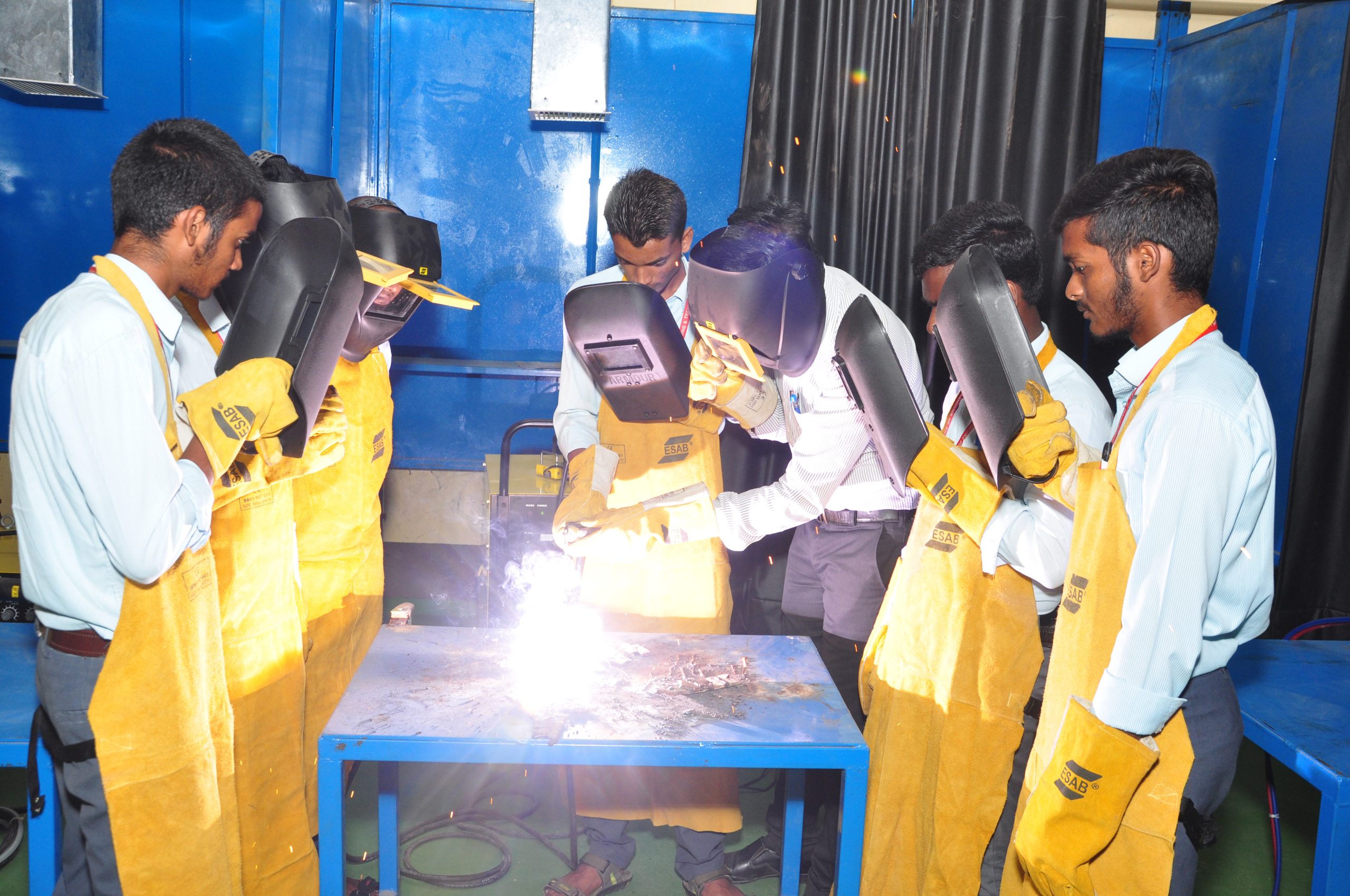
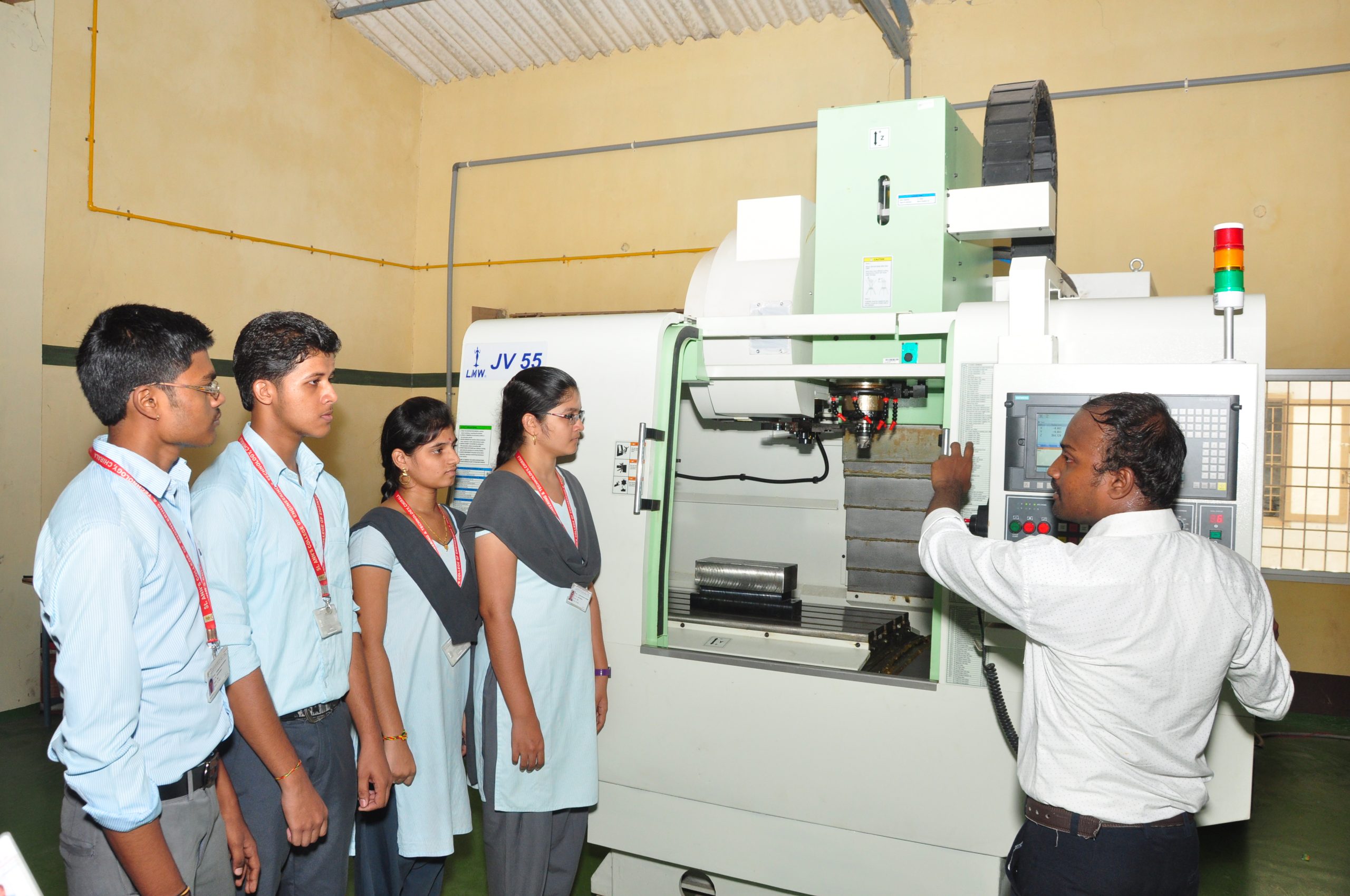
ABOUT HEAD OF THE DEPARTMENT
The department of MECHANICAL ENGINEERING has surpassed many milestones under the able and dynamic leadership of its HOD DR.CH.LAKSHMI TULASI.
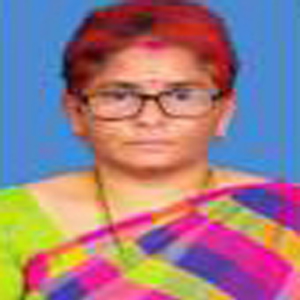
Dr.Ch.LAKSHMI TULASI
M.Tech, Ph.D
Professor & HOD- Department of ME.
VISION
To become a center of excellence in the Mechanical Engineering discipline with effective teaching and learning environment to meet the changing and challenging needs of the modern industry and research originations, motivate students to pursue higher studies, ignite entrepreneurship skills to enhance national wealth.
MISSION
- To provide quality education in undergraduate and postgraduate programs, leading to careers as Mechanical Engineering professionals in the industry, government, academic and research organizations.
- To be the preferred choice of students, faculty and industry.
- To impart skills required to analyze, design and manufacture components and systems.
- To develop human resources for the benefit of society and industry through the process of continuous learning and innovative skills in Mechanical Engineering.
| S. No | Faculty Name | FDP/Workshop Name | Conducted Organization | Dates |
| 1 | Dr Lakshmi Tulasi Chavali | Sustainable Technologies for Advancing Sustainable development goals | Anil Neerukonda Institute of Technology & Sciences | 16/12/2024 to 21/12/2024 |
| 2 | Dr Lakshmi Tulasi Chavali | CNC (Lathe & Milling) Programming in Industrial applications | St. Ann’s College of Engineering & Technology, Chirala | 19/09/2024 to 21/09/2024 |
| 3 | Dr. T. Gopala Rao | Metal Additive Manufacturing: From Advances to Adaptability | St. Joseph’s Institute of Technology, Chennai | 04/11/2024 to 08/11/2024 |
| 4 | Dr. T. Gopala Rao | CNC (Lathe & Milling) Programming in Industrial applications | St. Ann’s College of Engineering & Technology, Chirala | 19/09/2024 to 21/09/2024 |
| 5 | Dr. D. Sivabhaskara Rao | CNC (Lathe & Milling) Programming in Industrial applications | St. Ann’s College of Engineering & Technology, Chirala | 19/09/2024 to 21/09/2024 |
| 6 | Mr. D. Jawaharlal | CNC (Lathe & Milling) Programming in Industrial applications | St. Ann’s College of Engineering & Technology, Chirala | 19/09/2024 to 21/09/2024 |
| 7 | Mr. P. Rambabu | CNC (Lathe & Milling) Programming in Industrial applications | St. Ann’s College of Engineering & Technology, Chirala | 19/09/2024 to 21/09/2024 |
| 8 | Mr. M. Suresh Kumar | Road Safety – Need of the hour | VNR Vignana Jyothi Institute of Engineering and Technology, Bachupally | 29/07/2024 to 02/08/2024 |
| 9 | Mr. M. Suresh Kumar | CNC (Lathe & Milling) Programming in Industrial applications | St. Ann’s College of Engineering & Technology, Chirala | 19/09/2024 to 21/09/2024 |
| 10 | Mr. G. Janakiram | Machine Learning and Artificial Intelligence | SJB Institute of Technology, Bangalore with ExcelR Edtech Pvt. Ltd. | 12/08/2024 to 19/08/2024 |
| 11 | Mr. G. Janakiram | CNC (Lathe & Milling) Programming in Industrial applications | St. Ann’s College of Engineering & Technology, Chirala | 19/09/2024 to 21/09/2024 |
| 12 | Mr. V. Markandeyulu | CNC (Lathe & Milling) Programming in Industrial applications | St. Ann’s College of Engineering & Technology, Chirala | 19/09/2024 to 21/09/2024 |
| 13 | Mr. N. V. Narasimha Rao | CNC (Lathe & Milling) Programming in Industrial applications | St. Ann’s College of Engineering & Technology, Chirala | 19/09/2024 to 21/09/2024 |
| 14 | Mr. Z. Edukondalu | CNC (Lathe & Milling) Programming in Industrial applications | St. Ann’s College of Engineering & Technology, Chirala | 19/09/2024 to 21/09/2024 |
| 15 | Mr. B. Ravi Kumar | CNC (Lathe & Milling) Programming in Industrial applications | St. Ann’s College of Engineering & Technology, Chirala | 19/09/2024 to 21/09/2024 |
| 16 | Mr. Sk. Meeravali | CNC (Lathe & Milling) Programming in Industrial applications | St. Ann’s College of Engineering & Technology, Chirala | 19/09/2024 to 21/09/2024 |
| 17 | Mr. P. Harish | AI and Gen AI with Industrial Application | Narasaraopeta Engineering College, Narasaraopeta with ExcelR Edtech Pvt. Ltd. | 16/07/2024 to 22/07/2024 |
| 18 | Mr. P. Harish | Gen – AI and Prompt Engineering using Microsoft Co-Pilot | BNM Institute of Technology, Bangalore with ExcelR Edtech Pvt. Ltd. | 16/09/2024 to 20/09/2024 |
| 19 | Mr. P. Harish | CNC (Lathe & Milling) Programming in Industrial applications | St. Ann’s College of Engineering & Technology, Chirala | 19/09/2024 to 21/09/2024 |
| 20 | Mr. P. Harish | Drive Train: Building Expertise for the Next Gen Automotive Classroom | GITAM University | 27/01/2025 to 01/02/2025 |
| 21 | Mr. D. Ravi | CNC (Lathe & Milling) Programming in Industrial applications | St. Ann’s College of Engineering & Technology, Chirala | 19/09/2024 to 21/09/2024 |
| 22 | Mr. B. Anil Kumar | CNC (Lathe & Milling) Programming in Industrial applications | St. Ann’s College of Engineering & Technology, Chirala | 19/09/2024 to 21/09/2024 |
| 23 | Mr. P. Balaji Babu | CNC (Lathe & Milling) Programming in Industrial applications | St. Ann’s College of Engineering & Technology, Chirala | 19/09/2024 to 21/09/2024 |
| 24 | Mr. D. Mohan Babu | CNC (Lathe & Milling) Programming in Industrial applications | St. Ann’s College of Engineering & Technology, Chirala | 19/09/2024 to 21/09/2024 |
| 25 | Mr. D. Avinash Kumar | CNC (Lathe & Milling) Programming in Industrial applications | St. Ann’s College of Engineering & Technology, Chirala | 19/09/2024 to 21/09/2024 |
| S.No | Faculty Name | FDP/Workshop Name | Conducted Organization | Dates |
| 1 | Dr Lakshmi Tulasi Chavali | 3D Printing, Robotics & IOT Programming | St. Ann’s College of Engineering & Technology, Chirala | 30/10/2023 to 04/11/2023 |
| 2 | Dr Lakshmi Tulasi Chavali | Importance of NDT in Quality & Energy Sector | St. Ann’s College of Engineering & Technology, Chirala | 10/06/2024 to 12/06/2024 |
| 3 | Dr. T. Gopala Rao | 3D Printing, Robotics & IOT Programming | St. Ann’s College of Engineering & Technology, Chirala | 30/10/2023 to 04/11/2023 |
| 4 | Dr. T. Gopala Rao | Importance of NDT in Quality & Energy Sector | St. Ann’s College of Engineering & Technology, Chirala | 10/06/2024 to 12/06/2024 |
| 5 | Dr. D. Sivabhaskara Rao | 3D Printing, Robotics & IOT Programming | St. Ann’s College of Engineering & Technology, Chirala | 30/10/2023 to 04/11/2023 |
| 6 | Dr. D. Sivabhaskara Rao | Importance of NDT in Quality & Energy Sector | St. Ann’s College of Engineering & Technology, Chirala | 10/06/2024 to 12/06/2024 |
| 7 | Mr. D. Jawaharlal | 3D Printing, Robotics & IOT Programming | St. Ann’s College of Engineering & Technology, Chirala | 30/10/2023 to 04/11/2023 |
| 8 | Mr. D. Jawaharlal | Importance of NDT in Quality & Energy Sector | St. Ann’s College of Engineering & Technology, Chirala | 10/06/2024 to 12/06/2024 |
| 9 | Mr. P. Rambabu | 3D Printing, Robotics & IOT Programming | St. Ann’s College of Engineering & Technology, Chirala | 30/10/2023 to 04/11/2023 |
| 10 | Mr. P. Rambabu | Importance of NDT in Quality & Energy Sector | St. Ann’s College of Engineering & Technology, Chirala | 10/06/2024 to 12/06/2024 |
| 11 | Mr. G. Janakiram | 3D Printing, Robotics & IOT Programming | St. Ann’s College of Engineering & Technology, Chirala | 30/10/2023 to 04/11/2023 |
| 12 | Mr. G. Janakiram | Importance of NDT in Quality & Energy Sector | St. Ann’s College of Engineering & Technology, Chirala | 10/06/2024 to 12/06/2024 |
| 13 | Mr. M. Suresh Kumar | Emerging Trends in Mechanical Engineering | Lords Institute of Engineering & Technology | 22/04/2024 to 27/04/2024 |
| 14 | Mr. M. Suresh Kumar | 3D Printing, Robotics & IOT Programming | St. Ann’s College of Engineering & Technology, Chirala | 30/10/2023 to 04/11/2023 |
| 15 | Mr. M. Suresh Kumar | Importance of NDT in Quality & Energy Sector | St. Ann’s College of Engineering & Technology, Chirala | 10/06/2024 to 12/06/2024 |
| 16 | Mr. V. Markandeyulu | 3D Printing, Robotics & IOT Programming | St. Ann’s College of Engineering & Technology, Chirala | 30/10/2023 to 04/11/2023 |
| 17 | Mr. V. Markandeyulu | Importance of NDT in Quality & Energy Sector | St. Ann’s College of Engineering & Technology, Chirala | 10/06/2024 to 12/06/2024 |
| 18 | Mr. N. V. Narasimha Rao | Emerging Trends in Mechanical Engineering | Lords Institute of Engineering & Technology | 22/04/2024 to 27/04/2024 |
| 19 | Mr. N. V. Narasimha Rao | 3D Printing, Robotics & IOT Programming | St. Ann’s College of Engineering & Technology, Chirala | 30/10/2023 to 04/11/2023 |
| 20 | Mr. N. V. Narasimha Rao | Importance of NDT in Quality & Energy Sector | St. Ann’s College of Engineering & Technology, Chirala | 10/06/2024 to 12/06/2024 |
| 21 | Mr. Z. Edukondalu | 3D Printing, Robotics & IOT Programming | St. Ann’s College of Engineering & Technology, Chirala | 30/10/2023 to 04/11/2023 |
| 22 | Mr. Z. Edukondalu | Importance of NDT in Quality & Energy Sector | St. Ann’s College of Engineering & Technology, Chirala | 10/06/2024 to 12/06/2024 |
| 23 | Mr. B. Ravi Kumar | 3D Printing, Robotics & IOT Programming | St. Ann’s College of Engineering & Technology, Chirala | 30/10/2023 to 04/11/2023 |
| 24 | Mr. B. Ravi Kumar | Importance of NDT in Quality & Energy Sector | St. Ann’s College of Engineering & Technology, Chirala | 10/06/2024 to 12/06/2024 |
| 25 | Mr. Sk. Meeravali | 3D Printing, Robotics & IOT Programming | St. Ann’s College of Engineering & Technology, Chirala | 30/10/2023 to 04/11/2023 |
| 26 | Mr. Sk. Meeravali | Importance of NDT in Quality & Energy Sector | St. Ann’s College of Engineering & Technology, Chirala | 10/06/2024 to 12/06/2024 |
| 27 | Mr. P. Harish | 3D Printing, Robotics & IOT Programming | St. Ann’s College of Engineering &Technology, Chirala | 30/10/2023 to 04/11/2023 |
| 28 | Mr. P. Harish | NLP and Chat GPT Applications | SECAB Institute of Engineering & Technology in collaboration with ExcelR Edtech Pvt. Ltd. | 14/08/2023 to 19/08/2023 |
| 29 | Mr. P. Harish | Cyber Security | Chaitanya Bharathi Institute of Technology in collaboration with ExcelR Edtech Pvt. Ltd. | 25/09/2023 to 14/10/2023 |
| 30 | Mr. P. Harish | Importance of NDT in Quality & Energy Sector | St. Ann’s College of Engineering & Technology, Chirala | 10/06/2024 to 12/06/2024 |
| 31 | Mr. D. Ravi | 3D Printing, Robotics & IOT Programming | St. Ann’s College of Engineering & Technology, Chirala | 30/10/2023 to 04/11/2023 |
| 32 | Mr. D. Ravi | Importance of NDT in Quality & Energy Sector | St. Ann’s College of Engineering & Technology, Chirala | 10/06/2024 to 12/06/2024 |
| 33 | Mr. B. Anil Kumar | 3D Printing, Robotics & IOT Programming | St. Ann’s College of Engineering & Technology, Chirala | 30/10/2023 to 04/11/2023 |
| 34 | Mr. B. Anil Kumar | Importance of NDT in Quality & Energy Sector | St. Ann’s College of Engineering & Technology, Chirala | 10/06/2024 to 12/06/2024 |
| 35 | Mr. P. Balaji Babu | 3D Printing, Robotics & IOT Programming | St. Ann’s College of Engineering & Technology, Chirala | 30/10/2023 to 04/11/2023 |
| 36 | Mr. P. Balaji Babu | Importance of NDT in Quality & Energy Sector | St. Ann’s College of Engineering & Technology, Chirala | 10/06/2024 to 12/06/2024 |
| 37 | Mr. D. Mohan Babu | 3D Printing, Robotics & IOT Programming | St. Ann’s College of Engineering & Technology, Chirala | 30/10/2023 to 04/11/2023 |
| 38 | Mr. D. Mohan Babu | Importance of NDT in Quality & Energy Sector | St. Ann’s College of Engineering & Technology, Chirala | 10/06/2024 to 12/06/2024 |
| 39 | Mr. D. Avinash Kumar | 3D Printing, Robotics & IOT Programming | St. Ann’s College of Engineering & Technology, Chirala | 30/10/2023 to 04/11/2023 |
| 40 | Mr. D. Avinash Kumar | Importance of NDT in Quality & Energy Sector | St. Ann’s College of Engineering & Technology, Chirala | 10/06/2024 to 12/06/2024 |
| S.No | Faculty Name | FDP/Workshop Name | Conducted Organization | Dates |
| 1 | Dr Lakshmi Tulasi Chavali | One Week FDP on Advancements in Mechanical Engineering | Lakireddy Bali Reddy College of Engineering, Mylavaram | 19/06/2023 to 24/06/2023 |
| 2 | Dr Lakshmi Tulasi Chavali | Advances in Materials and Manufacturing Technologies | Kallam Haranadhareddy Institute of Technology, Guntur | 26/06/2023 to 30/06/2023 |
| 3 | Dr. T. Gopala Rao | One Week FDP on Advancements in thermal and renewable energy technologies | Lakireddy Bali Reddy College of Engineering, Mylavaram | 04/07/2022 to 09/07/2022 |
| 4 | Dr Siva Bhaskara Rao Devireddy | Thermal Science and Materials Engineering | Srinivasa Ramanujan Institute of Technology, Ananthapuramu | 07/11/2022 to 11/11/2022 |
| 5 | Dr Siva Bhaskara Rao Devireddy | One Week FDP on Advancements in Mechanical Engineering | Lakireddy Bali Reddy College of Engineering, Mylavaram | 19/06/2023 to 24/06/2023 |
| 6 | Mr. Jawaharlal Dandu | One Week FDP on Advancements in Mechanical Engineering | Lakireddy Bali Reddy College of Engineering, Mylavaram | 19/06/2023 to 24/06/2023 |
| 7 | Mr. Jawaharlal Dandu | Skill Based Education | VRS & VRN College of Engineering and Technology, Chirala | 05/06/2023 to 07/06/2023 |
| 8 | Mr. P. Rambabu | Skill Based Education | VRS & VRN College of Engineering and Technology, Chirala | 05/06/2023 to 07/06/2023 |
| 9 | Mr. G. Janakiram | CNC-Milling | APSSDC – SIEMENS CENTER | 11-07-2022 to 16-07-2022 |
| 10 | Mr. G. Janakiram | Thermal Science and Materials Engineering | Srinivasa Ramanujan Institute of Technology, Ananthapuramu | 07/11/2022 to 11/11/2022 |
| 11 | Mr. G. Janakiram | One Week FDP on Advancements in Mechanical Engineering | Lakireddy Bali Reddy College of Engineering, Mylavaram | 19/06/2023 to 24/06/2023 |
| 12 | Mr. G. Janakiram | Advances in Materials and Manufacturing Technologies | Kallam Haranadhareddy Institute of Technology, Guntur | 26/06/2023 to 30/06/2023 |
| 13 | Mr. M. Suresh Kumar | CNC-Milling | APSSDC – SIEMENS CENTER | 11-07-2022 to 16-07-2022 |
| 14 | Mr. M. Suresh Kumar | Innovations in Mechanical Engineering | Vasi reddy Venkatadri Institute of Technology, Nambur | 26-12-2022 to 30-12-2022 |
| 15 | Mr. M. Suresh Kumar | Applications of Artificial Intelligence and Machine Learning in Mechanical Engineering | Seshadri Rao Gudlavalleru Engineering College, Gudlavalleru | 06/03/2023 to 10/03/2023 |
| 16 | Mr. M. Suresh Kumar | Thermal Science and Materials Engineering | Srinivasa Ramanujan Institute of Technology, Ananthapuramu | 07/11/2022 to 11/11/2022 |
| 17 | Mr. M. Suresh Kumar | One Week FDP on Advancements in Mechanical Engineering | Lakireddy Bali Reddy College of Engineering, Mylavaram | 19/06/2023 to 24/06/2023 |
| 18 | Mr. M. Suresh Kumar | Advances in Materials and Manufacturing Technologies | Kallam Haranadhareddy Institute of Technology, Guntur | 26/06/2023 to 30/06/2023 |
| 19 | Mr. N. V. Narasimha Rao | One Week FDP on Advancements in Mechanical Engineering | Lakireddy Bali Reddy College of Engineering, Mylavaram | 19/06/2023 to 24/06/2023 |
| 20 | Mr. Z. Edukondalu | Innovations in Mechanical Engineering | Vasi reddy Venkatadri Institute of Technology, Nambur | 26-12-2022 to 30-12-2022 |
| 21 | Mr. B. Ravi Kumar | One Week FDP on Advancements in thermal and renewable energy technologies | Lakireddy Bali Reddy College of Engineering, Mylavaram | 04/07/2022 to 09/07/2022 |
| 22 | Mr. SK. Meeravali | Skill Based Education | VRS & VRN College of Engineering and Technology, Chirala | 05/06/2023 to 07/06/2023 |
| 23 | Mr. P. Harish | International Webinar on Advanced Transparent Ceramic Materials for Defence Applications | Bharat Institute of Engineering and Technology | 26/11/2022 |
| 24 | Mr. P. Harish | One Week FDP on Advancements in Mechanical Engineering | Lakireddy Bali Reddy College of Engineering, Mylavaram | 19/06/2023 to 24/06/2023 |
| 25 | Mr. P. Harish | Advances in Materials and Manufacturing Technologies | Kallam Haranadhareddy Institute of Technology, Guntur | 26/06/2023 to 30/06/2023 |
| S.No | Faculty Name | FDP/Workshop Name | Conducted Organization | Dates |
| 1 | Dr. T. Gopala Rao | FDP on Artificial Intelligence/Machine Learning | Shri Vishnu Engineering College for Women, Bhimavaram | 21-03-2022 to 26-03-2022 |
| 2 | Dr Siva Bhaskara Rao Devireddy | FDP on ‘Product Design & Drafting by CATIA’ | APSSDC. SKILL AP | 16-08-2021 to 01-09-2021 |
| 3 | Mr. Jawaharlal Dandu | FDP on Artificial Intelligence/Machine Learning | Shri Vishnu Engineering College for Women, Bhimavaram | 21-03-2022 to 26-03-2022 |
| 4 | Mr. M. Suresh Kumar | FDP on ‘Emerging Trends In Automotive And Energy Systems’ | Sree Vidyanikethan Engineering College, Tirupathi | 23-08-2021 to 27-08-2021 |
| 5 | Mr. M. Suresh Kumar | FDP On ‘Recent Advancements &Research Opportunities In Energy Sector’ | Aditya Engineering College, Surampalem | 29-11-2021 to 03/12/2021 |
| 6 | Mr. S. Harish Babu | FDP on ‘Computational Fluid Dynamics’ | Centurion University of Technology and Management | 26-07-2021 to 30-07-2021 |
| 7 | Mr. B. Ravi Kumar | FDP On ‘National Webinar On Concepts Of Fast Breeder Reactors’ | Nehru Institute Of Engineering & Technology, Coimbatore | 28/07/2021 |
| 8 | Mr. B. Ravi Kumar | FDP On ’Emerging Trends In Automotive And Energy Systems’ | Sree Vidyanikethan Engineering College, Tirupathi | 23-08-2021 to 27-08-2021 |
| 9 | Mr. P. Harish | FDP On ‘Role And Impact of Entrepreneurship To Students’ | Arasu Engineering College, kumbakonam | 30-08.2021 |
| 10 | Mr. P. Harish | FDP On ‘Recent Advancements &Research Opportunities In Energy Sector’ | Aditya Engineering College, Surampalem | 29-11-2021 to 03/12/2021 |
| 11 | Mr. P. Harish | FDP On ‘Professionalism in higher Education’ | Bharati vidyapeeth college of Engineering, Navi Mumbai | 29/08/2021 |
| 12 | Mr. P. Harish | FDP On ’Emerging Trends In Automotive And Energy Systems’ | Sree Vidyanikethan Engineering College, Tirupathi | 23-08-2021 to 27-08-2021 |
| 13 | Mr. D. Ravi | FDP on ‘Recent Trends In Industrial Engineering And Management’ | GMR Institute of Technology, Rajam, ap | 26-07-2021 to 30-07-2021 |
| 14 | Mr. D. Ravi | FDP on’ Design of experiment’ | Bharat Institute of Higher Education and Research ,Chennai | 28-06-2021 to 02-07-2021 |
| 15 | Mr. D. Ravi | FDP on ‘Emerging Trends In Automotive And Energy Systems’ | Sree Vidyanikethan Engineering College, Tirupathi | 23-08-2021 to 27-08-2021 |
| 16 | Mr. B. Anil Kumar | FDP on Artificial Intelligence/Machine Learning | Shri Vishnu Engineering College for Women, Bhimavaram | 21-03-2022 to 26-03-2022 |
| S.No | Faculty Name | FDP/Workshop Name | Conducted Organization | Dates |
| 1 | Dr. SK. Khader Basha | FDP on ‘Entrepreneurship Development’ | Ni-msme, Hyderabad | 25-11-2020 to 07-12-2020 |
| 2 | Dr Siva Bhaskara Rao Devireddy | Workshop on ‘NIRF INDIA RANKINGS’ | Collegiate Education & Technical Education Department, Govt. of Telangana | 18-01-2021 to 19-01-2021 |
| 3 | Mr. G. Janakiram | FDP on’ Effective Research Writing Using LaTex’ | Pragati Engineering College | 22-07-2020 to 27-07-2020 |
| 4 | Mr. G. Janakiram | FDP on ’Orienting Applications & Conceptualized Aspects Of Science & Humanities’ | Balaji Institute Of Technology&Science,Telangana | 21-07-2020 to 25-07-2020 |
| 5 | Mr. G. Janakiram | FDP on’ Advanced Nanomaterials & Their Engineering Applications’ | GMR Institute Of Technology. | 03-08-2020 to 08-08-2020 |
| 6 | Mr. G. Janakiram | FDP on’Recent Advance In Mechanical Engineering A Research Perspective’ | Mahatma Ganathi Institute Of Technology,Hyderabad | 06-07-2020 to 10-07-2020 |
| 7 | Mr. M. Suresh Kumar | FDP on ’Lost form casting (LFC-2020) | Sree Chaitanya College Of Engineering,karimnagar | 20-07-2020 to 25-07-2020 |
| 8 | Mr. M. Suresh Kumar | FDP on ’smart manufacturing opportunities& challenges’ | St.Joseph’s College Of Engineering, Chennai | 13-07-2020 to 18-07-2020 |
| 9 | Mr. M. Suresh Kumar | FDP On ’Recent Advances In Tribology &Surface Engineering | Saint its College Of Engineering, Kottayam | 14-09-2020 to 19-09-2020 |
| 10 | Mr. M. Suresh Kumar | FDP On ’Researches In Surface Engineering For Reliable Tribology’ | Girijananda Chowdhury institute of management and technology | 01-09-2020 to 05-09-2020 |
| 11 | Mr. M. Suresh Kumar | FDP On’multidisciplanary training for mechanical engineering’ | Sri Krishna College Of Engineering And Technology, Coimbatore | 16-11-2020 to 21-11-2020 |
| 12 | Mr. M. Suresh Kumar | FDP On’ Emerging Trends In Thermal, Design & Manufacturing’ | Madan Mohan Malaviya University Of Technology, Gorakhpur | 26-10-2020 to 30-10-2020 |
| 13 | Mr. M. Suresh Kumar | FDP On ‘Optimization techniques for mechanical engineering’ | Vignan Institute Of Technology &Science , Bhuvanagiri | 27-07-2020 to 01-08-2020 |
| 14 | Mr. M. Suresh Kumar | FDP On ’Recent Advances In Tribology &Surface Engineering | Saint its College Of Engineering, Kottayam | 23-11-2020 to 28-11-2020 |
| 15 | Mr. M. Suresh Kumar | FDP On’ strategic methods & tools for product development | SRKR Engineering College,Bhimavaram | 22-02-2021 to 26-02-2021 |
| 16 | Mr. N. V. Narasimha Rao | FDP On ‘Advances In Engine Combustion And Emission Diagnostics’ | NIT, Tadepalligudem ,AP | 05-10-2020 to 09-10-2020 |
| 17 | Mr. N. V. Narasimha Rao | FDP On’ Nanotechnology And Functional Materials’ | SV College Of Engineering,Tirupati | 14-09-2020 to 19-09-2020 |
| 18 | Mr. N. V. Narasimha Rao | FDP On’ Green Technology & Sustainability Engineering’ | AICTE Training And Learning Academy | 07-09-2020 to 11-09-2020 |
| 19 | Mr. N. V. Narasimha Rao | FDP On’ Frontiers Of Research In Thermal Sciences’ | Vimala Jyothi Engineering College,Kannur | 27-08-2020 To 09-09-2020 |
| 20 | Mr. N. V. Narasimha Rao | FDP On’ Mechanical Components Drafting By Auto CAD’ | APSSDC | 24-08-2020 To 05-09-2020 |
| 21 | Mr. N. V. Narasimha Rao | FDP On’ Nano Materials&Their Engineering Applications’ | GMR institute of technology, Kakinada | 03-08-2020 To 08-08-2020 |
| 22 | Mr. N. V. Narasimha Rao | FDP On’ Research Methodologies In Mechanical Engineering’ | Narasimha Reddy engineering college, secunderabad | 30-07-2020 To 01-08-2020 |
| 23 | Mr. N. V. Narasimha Rao | STTP on ‘Energy Storage Characteristics, Surface Treatment,Durability,Sustainability And Micro Structure Evaluation Of Smart And Phase Change Materials, | Sri Sai Ram Institute Of Technology | 27-07-2020 To 01-08-2020 |
| 24 | Mr. N. V. Narasimha Rao | FDP on Orienting Applications Conceptualized Aspects Of Sciences & Humanities’ | Balaji Institute Of Technology & sciences | 21-07-2020 To 25-07-2020 |
| 25 | Mr. N. V. Narasimha Rao | FDP On’ IC Engines& Gas Turbines’ | NPTEL-AICTE | Jan-apr 2021 |
| 26 | Mr. S. Harish Babu | FDP on ‘Completed successfully AICTE training and learning (ATAL) academy online FDP on Novel Material’ | SRM Institute of science and technology | 09-11-2020 To 13-11-2020 |
| 27 | Mr. S. Harish Babu | FDP on’ Completed Successfully AICTE Training And Learning(ATAL) Academy online FDP on ‘product design’ | College Of Engineering, Trivandrum | 04-08-2020 To 08-01-2021 |
| 28 | Mr. B. Ravi Kumar | FDP On’ Next Generation Solar Thermal Collectors’ | Vimala Jyothi Engineering College, Kannur | 14-09-2020 |
| 29 | Mr. B. Ravi Kumar | FDP On’ Energy Conversion And Audit’ | St. Ann’s College Of Engineering & Technology, chirala | 21-12-2020 |
| 30 | Mr. SK. Meeravali | FDP on ‘Entrepreneurship Development’ | Ni-msme, Hyderabad | 25-11-2020 To 07-12-2020 |
| 31 | Mr. P. Harish | FDP On’3-D printing in bio medical applications’ | Kl university | 13-03-2021 |
| 32 | Mr. P. Harish | FDP On’ industry 4.0 advanced manufacturing’ | KSRM college of Engineering, Kadapa | 18-06-2021 To 20-06-2021 |
| 33 | Mr. P. Harish | FDP On’ advanced materials and manufacturing’ | Kakatiya Institute Of Technology &Science | 29-06-2020 To 03-07-2020 |
| 34 | Mr. P. Harish | FDP On’ emerging research areas in mechanical engineering’ | CMR Technical Campus, Hyderabad | 29-06-2020 To 03-07-2020 |
| 35 | Mr. P. Harish | FDP On’ Contemporary Issues Of Biofuels And Applications’ | St. Ann’s College Of Engineering & Technology, chirala | 06-07-2020 To 10/07/2020 |
| 36 | Mr. P. Harish | FDP On ’Nanomaterial Synthesis, Process, Characterization And Functional Applications’ | Hindustan College Of Engineering And Technology, Coimbatore | 06-07-2020 To 11-07-2020 |
| 37 | Mr. P. Harish | FDP On’ Exciting Advances In Manufacturing Automation-2020’ | GITAM Institute Of Technology | 28-08-2020 to 29-08-2020 |
| 38 | Mr. D. Ravi | FDP On’advanced machining process’ | MIC College Of Technology, kanchikacherla | 18-07-2020 |
| 39 | Mr. D. Ravi | FDP On’ Development Of A General Purpose CFD Solved’ | Vimal Jyothi Engineering College, kannur | 31-08-2020 |
| 40 | Mr. D. Ravi | FDP On ’an overview of CFD and its applications’ | Karpagam Institute Of Technology | 08-08-2020 |
| 41 | Mr. D. Ravi | FDP On’ Contemporary Issues Of Biofuels And Applications’ | St. Ann’s College of Engineering And Technology, Chirala | 06-07-2020 To 10-07-2020 |
| 42 | Mr. D. Ravi | FDP On Optimization Of Process Parameters For Elevated Temp.Anisotropy Of Titanium Alloy For Aerospace Product Applications’ | Sree Data Institute Of Engineering &Science | 19-07-2020 |
| 43 | Mr. D. Ravi | FDP On’ five days online faculty development program on open foam’ | VKR VNB & AGK college of engineering, gudiwada. | 29-06-2020 To 03-07-2020 |
| 44 | Mr. D. Ravi | FDP On’ Nano Technology And Its Application’ | Vignan Institute of Technology & Science, Hyderabad | 16-07-2020 |
| 45 | Mr. D. Ravi | FDP On ‘Energy Conservation And Audit’ | St. Ann’s College of Engineering And Technology, Chirala | 21-12-2020 |
Participant Name(s) | Topic | Date | Place | Event |
A. Rajiv Reddy | National Robotic Championship Zonal level | 15,16 Feb-2013 | SSN Ongole | Workshop |
A. Surendra Reddy | National Robotic Championship Zonal level | 15,16 Feb-2013 | SSN Ongole | Workshop |
B.Krishnanjaneyulu | National Robotic Championship Zonal level | 15,16 Feb-2013 | SSN Ongole | Workshop |
D. Avinash Kumar | National Robotic Championship Zonal level | 15,16 Feb-2013 | SSN Ongole | Workshop |
D.Kishore | National Robotic Championship Zonal level | 15,16 Feb-2013 | SSN Ongole | Workshop |
D. Gopi sairam | National Robotic Championship Zonal level | 15,16 Feb-2013 | SSN Ongole | Workshop |
J.Mohan | National Robotic Championship Zonal level | 15,16 Feb-2013 | SSN Ongole | Workshop |
K.Tirumala Rao | National Robotic Championship Zonal level | 15,16 Feb-2013 | SSN Ongole | Workshop |
M.Raviteja | National Robotic Championship Zonal level | 15,16 Feb-2013 | SSN Ongole | Workshop |
P.Chaitanya | National Robotic Championship Zonal level | 15,16 Feb-2013 | SSN Ongole | Workshop |
S.Bhargavi | National Robotic Championship Zonal level | 15,16 Feb-2013 | SSN Ongole | Workshop |
T.Samuel | National Robotic Championship Zonal level | 15,16 Feb-2013 | SSN Ongole | Workshop |
U.Bharath | National Robotic Championship Zonal level | 15,16 Feb-2013 | SSN Ongole | Workshop |
V.Krishna | National Robotic Championship Zonal level | 15,16 Feb-2013 | SSN Ongole | Workshop |
K.Uday kumar | National Robotic Championship Zonal level | 15,16 Feb-2013 | SSN Ongole | Workshop |
A.Rajiv Reddy | Robotics | 3,4 Mar-2013 | IIT Chennai | Workshop |
A.Surendra Reddy | Robotics | 3,4 Mar-2013 | IIT Chennai | Workshop |
A.Raviteja | Robotics | 3,4 Mar-2013 | IIT Chennai | Workshop |
B.Veerareddy | Robotics | 3,4 Mar-2013 | IIT Chennai | Workshop |
B.Krishnanjaneyulu | Robotics | 3,4 Mar-2013 | IIT Chennai | Workshop |
B.Mallikarjunudu | Robotics | 3,4 Mar-2013 | IIT Chennai | Workshop |
B.Sasikesava kumar | Robotics | 3,4 Mar-2013 | IIT Chennai | Workshop |
D.Avinash Kumar | Robotics | 3,4 Mar-2013 | IIT Chennai | Workshop |
D. Mohanbabu | Robotics | 3,4 Mar-2013 | IIT Chennai | Workshop |
D.Tarun | Robotics | 3,4 Mar-2013 | IIT Chennai | Workshop |
G.Gopisairam | Robotics | 3,4 Mar-2013 | IIT Chennai | Workshop |
J.Mohan | Robotics | 3,4 Mar-2013 | IIT Chennai | Workshop |
J.Pream jeevan pradeep | Robotics | 3,4 Mar-2013 | IIT Chennai | Workshop |
K.Tirumala rao | Robotics | 3,4 Mar-2013 | IIT Chennai | Workshop |
K.Radhakrishna murthy | Robotics | 3,4 Mar-2013 | IIT Chennai | Workshop |
K.Gopichand | Robotics | 3,4 Mar-2013 | IIT Chennai | Workshop |
M.chakravarthy | Robotics | 3,4 Mar-2013 | IIT Chennai | Workshop |
N.Raviteja | Robotics | 3,4 Mar-2013 | IIT Chennai | Workshop |
S.Noor Mohammed Nayeem | Robotics | 3,4 Mar-2013 | IIT Chennai | Workshop |
T.samuel | Robotics | 3,4 Mar-2013 | IIT Chennai | Workshop |
T.Venkatesh | Robotics | 3,4 Mar-2013 | IIT Chennai | Workshop |
N.Trinesh | Robotics | 3,4 Mar-2013 | IIT Chennai | Workshop |
p.Mohanakishore | Robotics | 3,4 Mar-2013 | IIT Chennai | Workshop |
T.Samuel | Technical | 4,5 Jan-2013 | Vignan University | Technical Paper Presentation |
P.Nagarjuna reddy | Robotics | 3,4 Mar-2013 | IIT Chennai | Workshop |
P. Giridhar reddy | Robotics | 3,4 Mar-2013 | IIT Chennai | Workshop |
P.Anish kumar | Robotics | 3,4 Mar-2013 | IIT Chennai | Workshop |
R. Arun gopal reddy | Robotics | 3,4 Mar-2013 | IIT Chennai | Workshop |
S.Bhanu vikas | Robotics | 3,4 Mar-2013 | IIT Chennai | Workshop |
S.Musthaq Ahmed | Robotics | 3,4 Mar-2013 | IIT Chennai | Workshop |
S.Sandeep | Robotics | 3,4 Mar-2013 | IIT Chennai | Workshop |
S.Venkata Yeswanth | Robotics | 3,4 Mar-2013 | IIT Chennai | Workshop |
T.Mohan | Robotics | 3,4 Mar-2013 | IIT Chennai | Workshop |
T.sai krishna | Robotics | 3,4 Mar-2013 | IIT Chennai | Workshop |
T.Pandu ranga | Robotics | 3,4 Mar-2013 | IIT Chennai | Workshop |
V.Gopi krishna | Robotics | 3,4 Mar-2013 | IIT Chennai | Workshop |
V.Ranadheer | Robotics | 3,4 Mar-2013 | IIT Chennai | Workshop |
V.Sai krishna | Robotics | 3,4 Mar-2013 | IIT Chennai | Workshop |
Y.Tarun kumar | Robotics | 3,4 Mar-2013 | IIT Chennai | Workshop |
Y.Venkata phaniraj | Robotics | 3,4 Mar-2013 | IIT Chennai | Workshop |
B.Naveen | Robotics | 3,4 Mar-2013 | IIT Chennai | Workshop |
B.Bhanu sai murthi | Robotics | 3,4 Mar-2013 | IIT Chennai | Workshop |
Ch.Harish | Robotics | 3,4 Mar-2013 | IIT Chennai | Workshop |
Ch.Vijay | Robotics | 3,4 Mar-2013 | IIT Chennai | Workshop |
K.Chenchu krishna | Robotics | 3,4 Mar-2013 | IIT Chennai | Workshop |
K.Uday ram | Robotics | 3,4 Mar-2013 | IIT Chennai | Workshop |
N.Gopi | Robotics | 3,4 Mar-2013 | IIT Chennai | Workshop |
G.Raman | Robotics | 3,4 Mar-2013 | IIT Chennai | Workshop |
- Program Educational Objectives (PEOs)
- Program Outcomes (POs)
- Program Specific Outcomes (PSOs)
- Innovations
- BOS
|
|
I | To acquire academic excellence with good leadership qualities, ethical codes and aptitude for life-long learning needed for a successful professional career. |
II | To imbibe the necessary attributes for attaining senior Mechanical Engineering positions. |
III | To actively engaged in societal Mechanical Engineering activities such as design and safety, energy optimization & economical agricultural production machinery. |
IV | To Attain professional certifications and growth in the allied streams of Mechanical Engineering. |
V | To Work in research and development organizations to enhance national wealth and security. |
Engineering Graduates will be able to:
PO1. Engineering knowledge: Apply the knowledge of mathematics, science, engineering fundamentals, and an engineering specialization to the solution of complex engineering problems.
PO2. Problem analysis: Identify, formulate, review research literature, and analyze complex engineering problems reaching substantiated conclusions using first principles of mathematics, natural sciences, and engineering sciences.
PO3. Design/development of solutions: Design solutions for complex engineering problems and design system components or processes that meet the specified needs with appropriate consideration for the public health and safety, and the cultural, societal, and environmental considerations.
PO4. Conduct investigations of complex problems: Use research-based knowledge and research methods including design of experiments, analysis and interpretation of data, and synthesis of the information to provide valid conclusions.
PO5. Modern tool usage: Create, select, and apply appropriate techniques, resources, and modern engineering and IT tools including prediction and modeling to complex engineering activities with an understanding of the limitations.
PO6. The engineer and society: Apply reasoning informed by the contextual knowledge to assess societal, health, safety, legal and cultural issues and the consequent responsibilities relevant to the professional engineering practice.
PO7. Environment and sustainability: Understand the impact of the professional engineering solutions in societal and environmental contexts, and demonstrate the knowledge of, and need for sustainable development.
PO8. Ethics: Apply ethical principles and commit to professional ethics and responsibilities and norms of the engineering practice.
PO9. Individual and team work: Function effectively as an individual, and as a member or leader in diverse teams, and in multidisciplinary settings.
PO10. Communication: Communicate effectively on complex engineering activities with the engineering community and with society at large, such as, being able to comprehend and write effective reports and design documentation, make effective presentations, and give and receive clear instructions.
PO11. Project management and finance: Demonstrate knowledge and understanding of the engineering and management principles and apply these to one’s own work, as a member and leader in a team, to manage projects and in multidisciplinary environments.
PO12. Life-long learning: Recognize the need for, and have the preparation and ability to engage in independent and life-long learning in the broadest context of technological change
Programme specific outcomes
1.Apply their knowledge in in the domain of engineering mechanics, thermal and fluid sciences to solve engineering problems utilizing advanced technology.
2. Effectively apply the principles of design, analysis and implementation of mechanical systems/processes which have been learned as a part of the curriculum.
3. Develop and execute new ideas on product design and development with the help of modern CAD/CAM tools, while ensuring best manufacturing practices.
4. Ability to discover, articulate the local industrial problems and solve with the use of Mechanical Engineering tools for realistic outcomes.
Innovations by the Faculty in Teaching and Learning:
The faculty of the department uses various latest pedagogical methods for the enhancement of learning process by the students.
Faculty using physical models and 3D models at the time of teaching Drawing class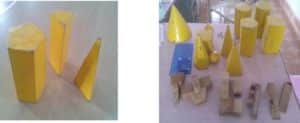
- Faculty using models of different Mechanisms at the time of teaching Kinematics of machinery subject.
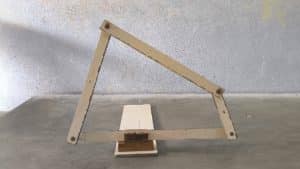
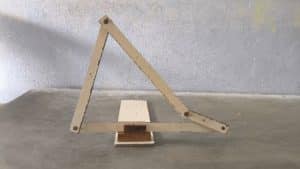
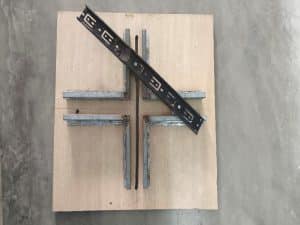
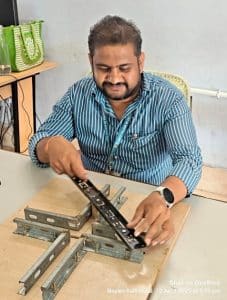
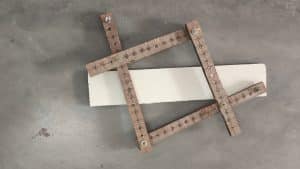
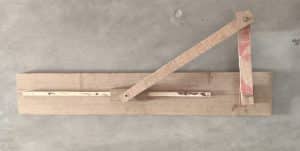
- Smart Class room facilities are used by the faculty for showing Animations and Video Lectures.
- Mode of teaching in this institute is not only limited to the traditional Chalk & Talk methods, but also by the modern technology (e.g.powerpoint presentation, audiovisual teaching etc.) with the traditional one. Faculty shares the study materials among the students via e-mail, websites, hand-outs etc.
- There is a digital library facility in the campus and the students are encouraged to refer to journals and conference proceedings for their project works and seminars in the latest topics. The library also possesses a number of magazines and periodicals also related to different branches of science and technology which the students may readily access
- Students are encouraged to visit NPTEL lectures, browse different internet sites to increase their knowledge base about the subject. Moreover, through these activities’ students acquire relevant knowledge which is beyond the syllabus as per the university curriculum
- Code Tantra is an online learning platform primarily focused on learning coding skills, utilizing an interactive and automated approach to help students learn programming languages like Java, Python, C, HTML, and more through a "learn by doing" methodology. To effective utilization of the facility, separate three hours added in time table and all accessories are provided to the students.

